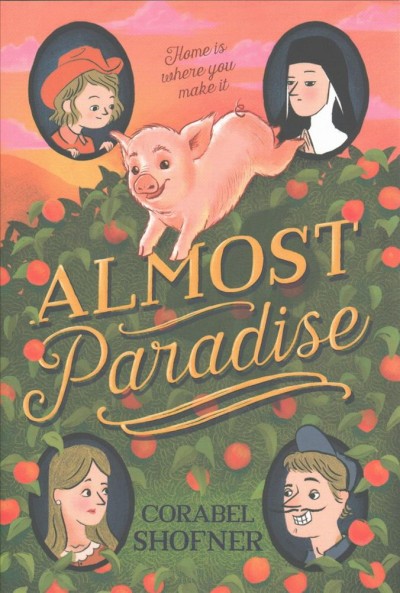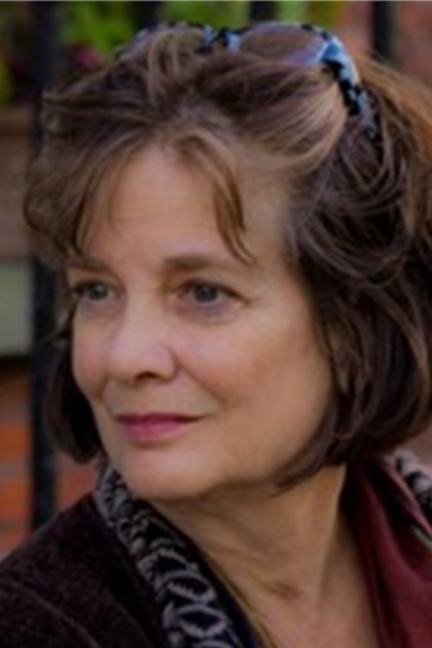Interview by Jana Hoops. Special to the Clarion-Ledger Sunday print edition (July 30).
Native Jacksonian Corabel Shofner (known as a child in Jackson as Bel with one L Alexander) has, with “great success, taken the long way when it came to navigating several important milestones in [her] life–but things have always, eventually, seemed to fall into place.”
At age 17, she decided to “interrupt” her education at Murrah High School–so she left, and hitchhiked around the world, landing in New York City. She eventually enrolled in Columbia University and graduated magna cum laude and Phi Beta Kappa after studying English literature and Arabic. She and husband Martin Shofner now live in Nashville, where she received a degree from Vanderbilt University School of Law. They have three grown children.
 Now in her mid-60s, Shofner is officially beginning her new career as a writer, releasing her debut book, Almost Paradise(Farrar Straus Giroux)–a story about love, self-sacrifice, and a family’s second chance at redemption.
Now in her mid-60s, Shofner is officially beginning her new career as a writer, releasing her debut book, Almost Paradise(Farrar Straus Giroux)–a story about love, self-sacrifice, and a family’s second chance at redemption.
Her shorter works have appeared or are forthcoming in Word Riot, Willow Review, Habersham Review, Hawai’i Review, Sou’wester, South Carolina Review, South Dakota Review, and Xavier Review.
Tell me about growing up in Jackson.
We lived in Lakeland and Old Canton Road. My first school was Duling, where I was fascinated by the principal, Mrs. or Miss Boutwell, because she had a mysterious medical crisis called a blood clot.
There were pine woods behind my house which I would walk through to see Ophelia, who was the housekeeper/caregiver for Mrs. Brown in Woodland Hills. Mrs. Brown is the first person I know who died. Ophelia’s lovely stone cottage was right out of a fairy tale. If someone left ashes in her ashtray she kept them because she loved the smell. I think of her every time I see or smell ashes.
We moved our house from Lakeland to Lelia Drive, down by what is now River Hills Country Club. Anybody who was alive at that time will remember the house that was stuck on the bridge for weeks. That would be mine. For year, when I would be drive home by a friend’s mother, she would pull up and gasp, “Wasn’t that the house…?”
I was a terrible student and not a reader at all, except when I crawled into the attic to read Black Beauty with my plastic horses. I did write. The first book was titled The Monsters Under My Bed. I dropped out of Murrah High School and hitchhiked away, but I go to all the 1971 class reunions.
I still have farm land in the Delta and we come home often. My children are all grown, now ages 24-31, and they are all very imaginative and artistic.
You are, or were, an attorney. When did you start writing, and are you giving up your legal career for writing at this time?
I love researching and writing law, but as a career, it is over. It was a great job, but I’m a bit conflict averse, which I should have thought about ahead of time. And I didn’t like measuring my life in billable hours. My family has a long history in law. My grandfather–Julian Power Alexander, who married Corabel Roberts–wrote a dissenting opinion when he was on the Mississippi Supreme Court that said that the constitution does not exact wisdom from its citizens, but ensures their right to folly. I love that so much.
He died at the Sugar Bowl (in New Orleans, in January 1953, two months before I was born. They took his body to Bultman’s funeral home and then on the train home. Bultman’s is now a Fresh Market Grocery Store. Pat Stevens told me that when I visited her in New Orleans recently. My father was a dear friend of her husband Phineaus.
Julian and Corabel had a Dutch Colonial house on Poplar Street in Belhaven, and I remember toddling up to the front door. My cousin (author Tom Sancton of New Orleans and Paris) tells me we are at least fifth-generation Mississippians-and 13th-generation Mayflower descendants–but, as he says, “that’s another story.”
In your debut novel, Almost Paradise, the main character, Ruby Clyde Henderson, had an unpredictable life for whom things eventually worked out in an unexpected way. She is a complicated character who deserves more than she often got during the first 12 years of her life. How did you conceive of this character and this story-line for your first book?
I had been diagnosed with multiple sclerosis and was heavily medicated, very worried about my children and our future. Ruby Clyde marched into my room and bounced on my bed, telling me about herself, in 2001. This book has been in and our of “the drawer” for years. Ruby Clyde is a healer and I believe that writing her story is why my prognosis is now quite strong.
It’s difficult to tell the time period in which the book is set, until we read that her aunt was digitizing document on her computer–but there are no mentions of cell phones, tablets, social media, or “devices.” Why is there no evidence of these modern distractions?
I wanted my story to be modern, but somewhat timeless, hence the computer in the backroom and a television that is rolled out of the closet. Sister Eleanor doesn’t have a phone–cell or land line. Phones were not necessary to Ruby Clyde and her mother socially or financially. Cell phones are certainly ubiquitous today, but once they are in a story it seems like tech takes over and clutters the relationships. So, even though mine is a contemporary story, I wanted Ruby Clyde and her mother to be connected by other means, and I wanted Paradise Ranch to be a very peaceful, nurturing, and healing place.
Some of the characters, maybe Joe Brewer and Lady Frank, might well have owned cell phones, but didn’t use them in my scenes. The Catfish probably had one somewhere. I thought of dropping in a mention of cell phones, but then that would bring more attention to cell phones and before you know it, everybody would be calling everybody.
By the way, you are not the first person to question the time period. I think there are several places where it is a bit more dreamy than realistic.
The relationship between Ruby Clyde and her mother is, for the most part, reversed. Explain the importance of their roles.
Ruby Clyde is competent and self-reliant by necessity because her mother has withdrawn. I have often seen that when a parent falls short, the child will step forward and take on the adult role. They lose their childhood. It is a tragedy that is overlooked because people are prone to praise the child for stepping in. That is hwy I call this a reverse coming-of-age story. Ruby is able to find adults she can trust and to reclaim her childhood. Of course, she has no entire clue this is what’s happening.
Tell me about the Christian references in the story…Ruby Clyde has an aunt who is a nun, she believes in the power of prayer, and she makes deals with God and lives up to them.
I am a Christian. Biblical imagery is some of the powerful stuff on earth. Much of it can be quite baffling. I have an odd way of seeing everything, religion included. Ruby Clyde believes and questions all at the same time. Also, self-sacrifice is important to me, as it is so difficult to do and keeps getting pushed down the list of virtues. Hence, the Tale of Two Cities thread. I was worried that I might offend people of faith, but I was relieved when a very conservative religious reviewer said that she “would definitely have no qualms about recommending the book to Christian families.”
What is your bigger message to readers who join Ruby Clyde on her journey in this story?
“Message” is a loaded word. It is difficult to write plain words and have them understood at face value. “Message” is in the ear of the reader. I certainly hope that Ruby Clyde’s bravery and compassion are contagious. Ruby Clyde likes to say that you have to love pieces of people because if you wait around for perfect, you will end up with nothing. Maybe that is a message from Ruby Clyde of her own self.

Corabel Shofner
Tell me about your other publications.
Stuff. Short stories, essays, legal writing. I wrote a brief for the U.S. Supreme Court.
Why were you drawn to writing a children’s book as your debut novel?
I just wrote my story. (My publisher) Farrar, Straus, And Giroux told me it was for 10-year-olds. That said, I couldn’t be more enchanted with the people dedicated to children’s literature.
Do you plan to continue writing children’s (or middle years) books?
Yes. I will continue to write my stories and then be told what they are. That said, whatever I write I will always support teachers and librarians and all people who work in children’s books. They are my people.
Corabel Shofner will sign copies of Almost Paradise at Lemuria Books at 5 p.m. on Tuesday, August 1. She will also serve as a panelist on the Middle Grade Reader’s discussion at the Mississippi Book Festival on Saturday, August 19 at 12 p.m. at the State Capitol in Room H.


Comments are closed.